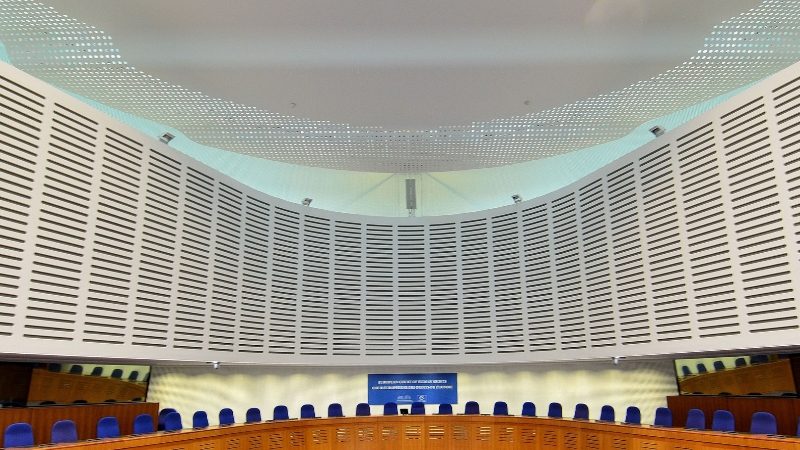The European Court of Human Rights ordered the Azerbaijan government to pay €20,000 to a human rights lawyer who was imprisoned in what the court said was an attempt to silence and punish him for his work in the field.
In its judgment, the court said the case was part of “a troubling pattern of arbitrary arrest and detention of critics of the government, civil society activists and human rights defenders”.
It called on the Azerbaijan government to take steps to protect such people, ensuring that there were no more retaliatory prosecutions and misuse of the law against them.
The case was filed by a human rights lawyer Intigam Kamil oglu Aliyev (no relation to the President) who is also a chairman of the Legal Education Society – a registered association. In 2014, he presented a report on the human rights situation in Azerbaijan to a Council of Europe Parliamentary Assembly session.
That same year, the Azeri Prosecutor General’s Office opened a case on alleged financial irregularities at various NGOs, including Aliyev’s association. He was charged with illegal entrepreneurship, large-scale tax evasion and aggravated abuse of power.
The Azerbaijan prosecutor had said Aliyev had failed to inform the authorities that he had become head of a legal entity – the association – and had omitted to register grants from donors. He was also accused of signing agreements on various sums without legal authority and had deposited money, made payments to himself and others ‘in the guise of’ salaries and service fees.
The lawyer was arrested and remanded in custody for three months, with his appeals against detention being dismissed. His home and his association’s office were also searched. The local courts rejected his complaints that those measures had been unlawful.
In December 2014, the Prosecutor General’s Office filed new charges of high-level embezzlement, forgery and very large-scale tax evasion.
He was convicted in April 2015 and jailed for seven and a half years, reduced to a five-year suspended sentence.
However, the ECHR noted that no evidence had been produced to uphold the charge of illegal entrepreneurial activity or that he had generated a profit from the grants.
Aliyev complained that putting him in detention and seizing his files on cases he had before the ECHR were aimed at punishing and silencing him as a government critic and human rights activist.
The ECHR noted that the context of the case was the “increasingly harsh and restrictive legislative regulation of NGOs” in Azerbaijan and that the steps taken against Mr Aliyev had restricted his freedom of association and his ability to conduct his human rights activity in a meaningful way.
The measures had also had a chilling effect on wider NGO activity, the court said, while pointing out that the actions taken against Aliyev had been aimed at silencing and punishing him.
There were similar violations in cases against Azerbaijan, meaning these could not be considered as isolated incidents and reflected “a troubling pattern of arbitrary arrest and detention of critics of the government, and civil society and human rights activists”.
The court ordered the Azerbaijan government to pay Aliyev €20,000 in damages and another €6,150 for legal expenses.












